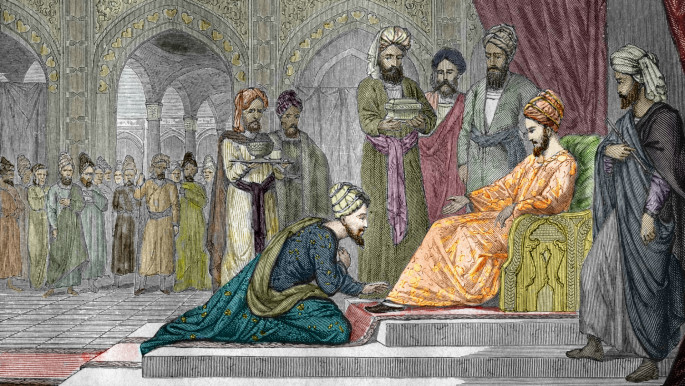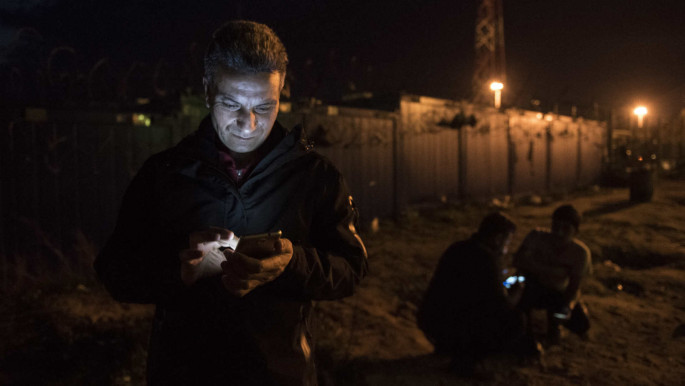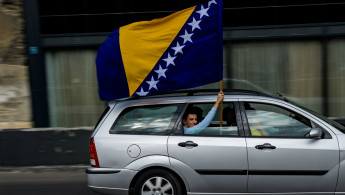Can Bosnia's path to peace and environmental protection be replicated in the Middle East?
Now, those same ethnic groups and religious communities are coming together once more to confront the effects of climate change and strengthen the environmental movement.
This tiny European nation-state's non-sectarian, post-war response to global warming can inform the approaches that Middle Eastern countries with their own histories of ethnic conflict and religious intolerance take to environmental issues. Bosnia's example has much to offer environmentalists from Iraq to Yemen as those countries contend with simultaneous ecological and humanitarian crises.
"In countries that have experienced violence or ethnic divisions, there are ways to use the natural environment as a tool to bring people together," Dr Patrice McMahon, an associate professor of political science at the University of Nebraska-Lincoln, told The New Arab.
"What some in Bosnia know well is that three factors can make a big difference in bringing people together: information, particularly shared information, local buy-in and support, and external and international incentives and support."
The Bosnian War left the Balkan country with a host of environmental issues. In 2002, Bosnia requested for the United Nations Environmental Programme, or UNEP, to investigate the effects of depleted uranium from munitions on the natural environment. Meanwhile, tens of thousands of landmines littered the countryside, contributing to soil contamination and water pollution and threatening public safety.
 |
Bosnia's example has much to offer environmentalists from Iraq to Yemen as those countries contend with simultaneous ecological and humanitarian crises |  |
 |
|
| Read also: Who was Avicenna, and what does he offer today's Iranians? |
The damage to Bosnia's infrastructure after Europe's bloodiest conflict since World War Two presented a more general challenge, undermining the country's ability to respond to the dangers of climate change.
"Groups need to know the extent of the problem and its direct and indirect effects on people, society, and the economy," noted McMahon, author of Taming Ethnic Hatreds: Ethnic Cooperation and Transnational Networks in Eastern Europe and The NGO Game: Post-Conflict Peacebuilding in the Balkans and Beyond.
"We know that, in a lot of post-conflict countries, having shared knowledge about environmental issues is crucial to having a reliable source to gather data and share information."
Two decades of interfaith dialogue, aided by civil society and the international community, helped Bosnians lay the groundwork for consensus decision-making. This step allowed Bosniaks, Croats, and Serbs to collaborate on overcoming their country's most pressing environmental issues.
"People use their religious affiliations to tribalise themselves and alienate themselves away from others," Fr. James Keenan, a Jesuit and professor of theology at Boston College who has arranged several conferences for theologians in Bosnia, told The New Arab.
"Interreligious dialogue tries to highlight that religions are related to one another in as much as they invoke a hope in transcendence."
The Dayton Agreement, brokered by Britain, France, Germany, Russia, and the United States, provided the framework for a multinational state that respected the autonomy of Bosnia's ethnicities while functioning as a forum for the discussion and resolution of national problems.
At the local level, Bosnian non-governmental organisations such as the Center for Peacebuilding, the International Multireligious Intercultural Center, and the Youth for Peace worked to bridge the cultural and political differences that had led to sectarian violence between Bosnia's once-harmonious religious denominations.
 |
The success of Bosnia's post-war interfaith dialogue can be understood through the activities carried out at different levels by individuals, grassroots non-governmental organisations, international organisations, religious communities, and state institutions |  |
 |
|
| Read also: Refugees still braving the soul-crushing 'Balkans route' |
"The success of Bosnia's post-war interfaith dialogue can be understood through the activities carried out at different levels by individuals, grassroots non-governmental organisations, international organisations, religious communities, and state institutions," said Dr Ahmed Kulanić, a lecturer at the International University of Sarajevo.
"Several of the key aspects included working with women, youths, and theologian's representative of Bosnia's mixed model of interfaith dialogue."
These steps forged the connections between ethnicities and religious communities needed to mobilise all Bosnians against the threat of climate change. Bosnia began a campaign to champion the environmental movement less than a decade after the conclusion of the Bosnian War.
"Dialogue about shared hope, among believers in traditions who have long looked at others' traditions with suspicion, allows for grounds to arise that not only push back those suspicions but also highlight the similarities of shared hopes," said Keenan, noting how Bosnians had come together after the Bosnian War.
"The grounds for validating alienation dissipate and new relations can emerge."
In 2002, Bosnia revamped how it handled waste management. Just one year later, the country had already established an "environmental protection fund," which has since cooperated on environmental protection with the United Nations Development Programme, or UNDP. That same year, Bosnia moved to regulate air pollution and refashion its environmental policy.
By 2006, Bosnia had legislated protections for water quality as well, completing a spate of reforms long sought by Bosnian environmentalists.
For their part, Bosnian diplomats signed the Convention on Biological Diversity, the Convention on Wetlands, the UN Framework on Climate Change, and the Vienna Convention for the Protection of the Ozone Layer, integrating Bosnia into the international community's wider efforts to curb global warming and setting the Balkan country on the path to a future of sustainable development.
Bosnia has also courted the UNDP, which has been assisting the country with meeting its goals for sustainable energy, and the UNEP, which opened an office in Sarajevo in 2010 to conduct environmental impact assessments.
"Good international partners and donors know full well that post-conflict countries cannot do this alone," said McMahon.
"Without taking over or taking away local agency, international donors need to provide support for objective analyses, monitoring, money, and resources for environmental groups as well as money for development schemes that consider environmental impact."
Bosnian environmental organisations have complemented these governmental efforts. NGOs such as the Center for the Environment and Ekotim have ensured that civil society plays just as big a role as politicians in marshalling Bosnia's ethnicities and religious communities against climate change. The NGO Energis has even taken to Twitter to promote environmental protection in Bosnia.
The success of Bosnians' commitment to the environmental movement rests on their willingness to bridge the divisions of the Bosnian War, rebuild their country, and unite against global warming.
 |
This interfaith, multi-ethnic approach to climate change offers a strategy for Middle Eastern countries with their own histories of sectarianism |  |
This interfaith, multi-ethnic approach to climate change offers a strategy for Middle Eastern countries with their own histories of sectarianism. There, civil wars have forced weak governments to leave environmental issues for another day. Even so, environmental disasters have proved no less dire in war zones.
"Although there are differences in the nature of the Bosnian War on one side and the Iraqi and Yemeni Civil Wars on the other, the lessons of religion's role in the post-war reconciliation process in general and interfaith dialogue in particular can be drawn out," Kulanić told The New Arab.
In Iraq, years of water scarcity has caused violent protests, compounding the country's notorious political fragility. In Yemen, a deadly combination of desertification and drought has undercut agriculture, a critical measure of food security for a country often on the verge of famine.
Well over a decade of on-again-off-again insurgencies has distracted Iraq and Yemen from environmental issues that could evolve into existential ecological and humanitarian crises. These conflicts have also exacerbated divisions between Sunnis, Shias, and other religious denominations, an obstacle to consensus decision-making critical to the environmental movement. The Bosnian model, however, has given Iraq and Yemen a replicable path to a future of peace and environmental protection.
"If interfaith dialogue occurs only at the upper level –becoming trapped at the institutional or academic level – the outcomes will be very limited," Kulanić told The New Arab, reflecting on Iraq and Yemen.
"Rather, interfaith dialogue as a tool of sustainable peace and reconciliation needs to take place within the local communities and must focus on the day to day lives of individuals."
He has conducted fieldwork in Bosnia, Indonesia, Iraq, Myanmar, Nicaragua, Oman, South Sudan, Thailand, and Uganda. His research has appeared in The Daily Beast, USA Today, Vox, and Wired.


![President Pezeshkian has denounced Israel's attacks on Lebanon [Getty]](/sites/default/files/styles/image_684x385/public/2173482924.jpeg?h=a5f2f23a&itok=q3evVtko)



 Follow the Middle East's top stories in English at The New Arab on Google News
Follow the Middle East's top stories in English at The New Arab on Google News


